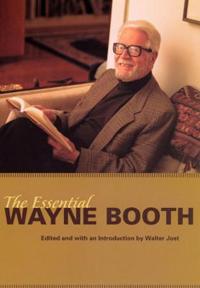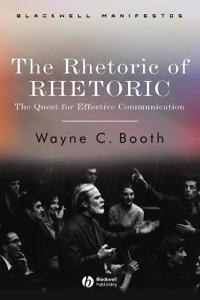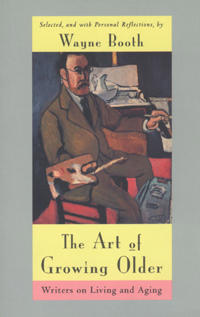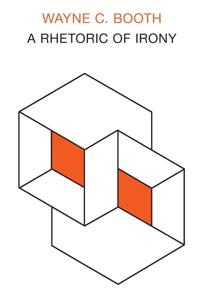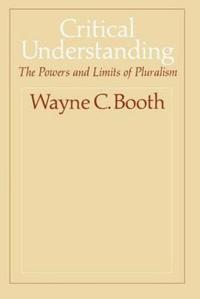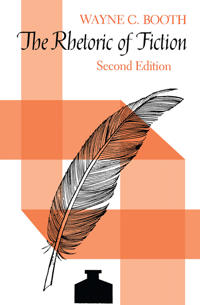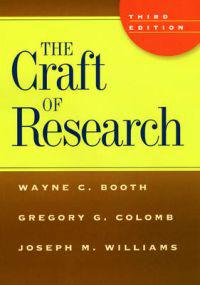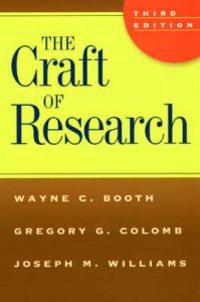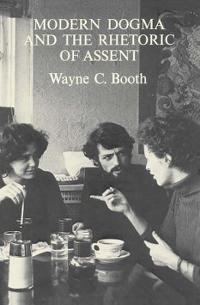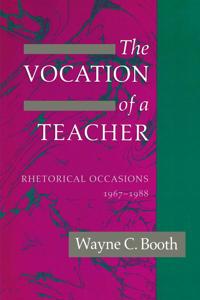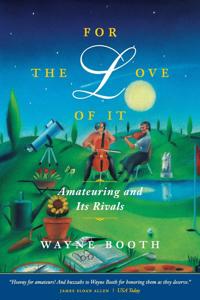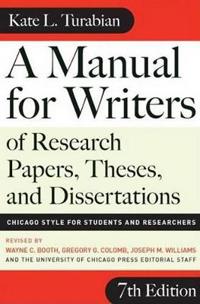The Essential Wayne Booth (Inbunden)
avWayne C. Booth, Walter Jost, Wayne C. Booth
ISBN: 9780226065922 - UTGIVEN: 2006-07Wayne Booth wrote some of the most influential and engaging criticism of our time, most notably the 1961 classic "The Rhetoric of Fiction", a book that transformed literary criticism and became the standard reference point for advanced discussions of how fiction works, how authors make novels access[...]
The Rhetoric of Rhetoric (Häftad)
avWayne C. Booth, Booth
ISBN: 9781405112376 - UTGIVEN: 200410In this manifesto, distinguished critic Wayne Booth claims that communication in every corner of life can be improved if we study rhetoric closely. * Written by Wayne Booth, author of the seminal book, The Rhetoric of Fiction (1961). * Explores the consequences of bad rhetoric in education, in poli[...]
The Art of Growing Older (Pocket)
avWayne C. Booth
ISBN: 9780226065496 - UTGIVEN: 1996-12Wayne Booth has selected, and has been inspired by, the works by some of our greatest writers on the art of growing older. In this widely praised anthology he shows that the very making of art is in itself a victory over time. "Culled chiefly from great literary works, this unusual compendium of pro[...]
A Rhetoric of Irony (Häftad)
avWayne C. Booth
ISBN: 9780226065533 - UTGIVEN: 197508Excerpts from works by Defoe, Beckett, and other writings illuminated the progresses by which individuals perceive, interpret, and communicate deliberately ironic statements in speed and writing[...]
Critical Understanding (Häftad)
avWayne C. Booth
ISBN: 9780226065557 - UTGIVEN: 198211Critics will always disagree, but, maintains Wayne Booth, their disagreement need not result in critical chaos. In Critical Understanding, Booth argues for a reasoned pluralism--a criticism more various and resourceful than can be caught in any one critic's net. He relates three noted pluralists--Ro[...]
Rhetoric of Fiction (Häftad)
avWayne C. Booth
ISBN: 9780226065588 - UTGIVEN: 198302The first edition of "The Rhetoric of Fiction" transformed the criticism of fiction and soon became a classic in the field. One of the most widely used texts in fiction courses, it is a standard reference point in advanced discussions of how fictional form works, how authors make novels accessible, [...]
The Craft of Research (Inbunden)
avWayne C. Booth, Gregory G. Colomb, Joseph M. Williams
ISBN: 9780226065656 - UTGIVEN: 200804With more than 200,000 copies in print, "The Craft of Research" is the unrivaled resource for researchers at every level, from first-year undergraduates to research reporters at corporations and government offices.Now, seasoned researchers and educators Gregory G. Colomb and Joseph M. Williams prese[...]
The Craft of Research (Pocket)
avWayne C. Booth, Gregory G. Colomb, Joseph M. Williams
ISBN: 9780226065663 - UTGIVEN: 200804With more than 200,000 copies in print, "The Craft of Research" is the unrivaled resource for researchers at every level, from first-year undergraduates to research reporters at corporations and government offices.Now, seasoned researchers and educators Gregory G. Colomb and Joseph M. Williams prese[...]
Modern Dogma and the Rhetoric of Assent (Häftad)
avWayne C. Booth
ISBN: 9780226065724 - UTGIVEN: 197410When should I change my mind? What can I believe and what must I doubt? In this new "philosophy of good reasons" Wayne C. Booth exposes five dogmas of modernism that have too often inhibited efforts to answer these questions. Modern dogmas teach that "you cannot reason about values" and that "the jo[...]
The Vocation of a Teacher (Häftad)
avWayne C. Booth
ISBN: 9780226065823 - UTGIVEN: 199011This critically acclaimed collection is both a passionate celebration of teaching as a vocation and an argument for rhetoric as the center of liberal education. While Booth provides an eloquent personal account of the pleasures of teaching, he also vigorously exposes the political and economic scand[...]
For the Love of it (Pocket)
avWayne C. Booth
ISBN: 9780226065861 - UTGIVEN: 2000-10Why would anyone spend free hours and weekends on a demanding practice that promises no payoff in money, fame, or power? Is it true that anything worth doing is worth doing only if you can get credit for doing it really well? Why do amateurs do what they do? Wayne Booth found himself enticed by thes[...]
A Manual for Writers of Research Papers, Theses, and Dissertations (Pocket)
avKate L. Turabian, Wayne C. Booth, Gregory G. Colomb
ISBN: 9780226823379 - UTGIVEN: 200704Dewey, Bellow, Strauss, Friedman - the University of Chicago has been the home of some of the most important thinkers of the modern age. But perhaps no name has been spoken with more respect than Turabian. The dissertation secretary at Chicago for decades, Kate L. Turabian literally wrote the book o[...]
Forskning och skrivande : konsten att skriva enkelt och effektivt (Häftad)
avWayne C Booth, Gregory G Colomb, Joseph M Williams
ISBN: 9789144032276 - UTGIVEN: 200403Boken utgör en praktisk vägledning till själva skrivandet i samband med planering, genomförande och rapportering av såväl examensarbeten och avhandlingar som uppsatser och projekt av olika slag på alla områden och alla nivåer inom universitet/högskola.
Författarna har väg[...]

